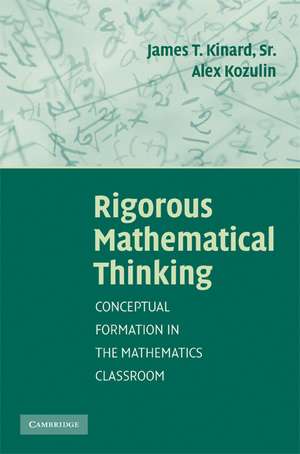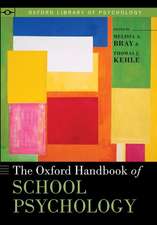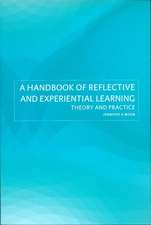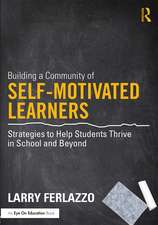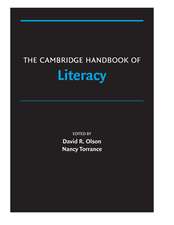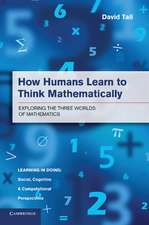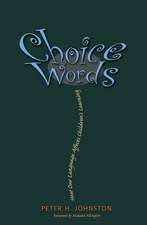Rigorous Mathematical Thinking: Conceptual Formation in the Mathematics Classroom
Autor James T. Kinard, Alex Kozulinen Limba Engleză Paperback – 7 iun 2008
| Toate formatele și edițiile | Preț | Express |
|---|---|---|
| Paperback (1) | 290.83 lei 43-57 zile | |
| Cambridge University Press – 7 iun 2008 | 290.83 lei 43-57 zile | |
| Hardback (1) | 445.49 lei 43-57 zile | |
| Cambridge University Press – iun 2008 | 445.49 lei 43-57 zile |
Preț: 290.83 lei
Nou
Puncte Express: 436
Preț estimativ în valută:
55.65€ • 58.25$ • 46.32£
55.65€ • 58.25$ • 46.32£
Carte tipărită la comandă
Livrare economică 31 martie-14 aprilie
Preluare comenzi: 021 569.72.76
Specificații
ISBN-13: 9780521700269
ISBN-10: 0521700264
Pagini: 216
Ilustrații: 36 b/w illus.
Dimensiuni: 152 x 228 x 14 mm
Greutate: 0.38 kg
Ediția:1
Editura: Cambridge University Press
Colecția Cambridge University Press
Locul publicării:New York, United States
ISBN-10: 0521700264
Pagini: 216
Ilustrații: 36 b/w illus.
Dimensiuni: 152 x 228 x 14 mm
Greutate: 0.38 kg
Ediția:1
Editura: Cambridge University Press
Colecția Cambridge University Press
Locul publicării:New York, United States
Cuprins
1. The culture of mathematics; 2. Goals and objectives of mathematics education; 3. Vygotsky's Sociocultural Theory and mathematics learning; 4. Mediated learning and cognitive functions; 5. Mathematical concept formation and cognitive tools; 6. Rigorous Mathematical Thinking – application, assessment and evaluation; 7. Conclusion.
Recenzii
'… The book raises some interesting ideas and should give rise to some productive reflections.' American Journal of Psychology
Notă biografică
Descriere
The first book to present mathematics teaching from Vygotsky's socio-cultural theory of learning perspective.
